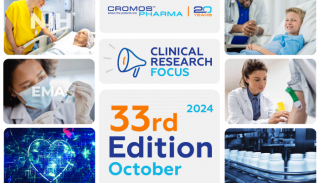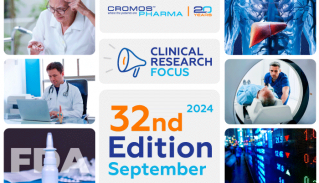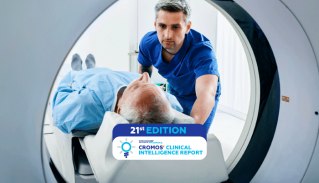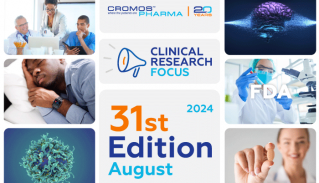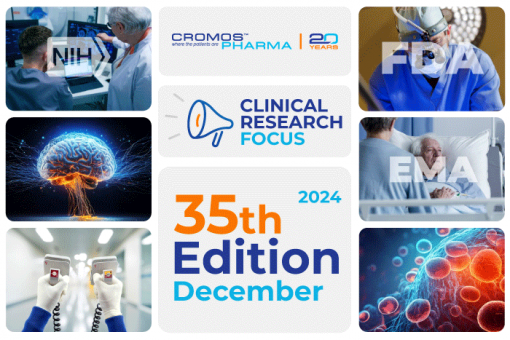
Clinical Research Focus. 35th Edition
Discover the Transformative Role of AI in Clinical Trials
As we look back at the groundbreaking innovations of 2024, AI has proven to be a game-changer in clinical research, redefining patient recruitment, protocol design, and drug discovery. From AI-generated digital twins to advanced patient recruitment tools, these developments are paving the way for faster, more efficient, and cost-effective trials.
Please follow the link to learn more.
FDA Approves First Gene Therapy for AADC Deficiency
The FDA has approved Kebilidi, the first gene therapy for aromatic L-amino acid decarboxylase (AADC) deficiency. This innovative treatment offers new hope for patients by improving motor function and dopamine production through a one-time surgical infusion. The therapy represents a significant breakthrough for managing this rare and debilitating genetic disorder.
Please follow the link to learn more.
World Diabetes Day: Advancing Treatment with GLP-1 Agonists and SGLT2 Inhibitors
On World Diabetes Day, we highlight the transformative role of GLP-1 agonists and SGLT2 inhibitors in managing Type 2 diabetes. These therapies offer unique benefits, from improved blood sugar control and weight loss to enhanced heart and kidney protection. Combining these medications can further optimize outcomes, providing a tailored approach to diabetes care.
Please follow the link to learn more.
EMA Recommends Leqembi for Early Alzheimer’s Disease
The EMA has endorsed Leqembi (lecanemab) for treating early Alzheimer’s in patients with one or no copies of the ApoE4 gene, reducing risks of ARIA. Clinical trials showed slowed cognitive decline, with controlled access and MRI monitoring ensuring safety. Final approval is pending from the European Commission.
Please follow the link to learn more.
Transforming Lung Cancer Care: New Insights Unveiled
During Lung Cancer Awareness Month, a groundbreaking combination therapy of amivantamab and lazertinib has shown to significantly extend progression-free survival for patients with advanced EGFR-mutated non-small cell lung cancer (NSCLC). The Phase 3 MARIPOSA trial highlights this dual-action therapy’s potential to set a new standard in personalized cancer treatment.
Please follow the link to learn more.
NIH Unveils AI Tool for Clinical Trial Matching
The NIH’s new TrialGPT AI algorithm simplifies matching patients to clinical trials, saving clinicians 40% of screening time while maintaining accuracy. This tool aims to accelerate research and improve access to trials for underrepresented groups.
Please follow the link to learn more.
New Research Shows Defibrillator Pad Placement Boosts Survival by 164%
A recent study revealed that switching defibrillator pads to an anterior-posterior (AP) configuration can dramatically improve survival rates for out-of-hospital cardiac arrest (OHCA) patients. This placement significantly enhances the odds of restoring a normal heart rhythm compared to the traditional anterior-lateral method.
Please follow the link to learn more.
Oxford Develops Ovarian Cancer Prevention Vaccine
The University of Oxford has received £600,000 from Cancer Research UK to develop OvarianVax, the first vaccine designed to prevent ovarian cancer. This groundbreaking research aims to train the immune system to detect and attack early-stage cancer cells, offering a less invasive alternative for high-risk women with BRCA1/2 mutations.
Please follow the link to learn more
Groundbreaking Stem Cell Therapy Brings New Hope for Type 1 Diabetes
In a world-first, researchers successfully reversed type 1 diabetes in a patient using stem cell therapy, achieving insulin independence for over a year. This breakthrough represents a potential shift from managing diabetes to curing it, offering renewed hope to millions worldwide.
Please follow the link to learn more.





























